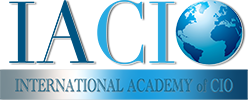The Institute of Digital Government, Waseda University headed by Dr. Toshio Obi, has released the results of 2018 Waseda-IAC International Digital Government ranking survey for the 14th consecutive year. The survey is conducted by the distinguished experts from Waseda University in partnership with the International Academy of CIO and ten world class universities and research centers. These institutions are Waseda University (Japan), Peking University (China), George Mason University, (USA), Thammasat University (Thailand), Bandung Institute of Technology (Indonesia), National University of Singapore (Singapore), RANEPA (Russia),University of Turku (Finland), Bocconi University (Italy), Taiwan e-Governance Research Center (Taiwan) and De La Salle University (Philippines).
Warning Signal against Digital Divide and Innovation Gap
The 2018 ranking survey marks Denmark attaining first place, followed by Singapore which was the top position last year in 2nd, the United Kingdom in 3rd, Estonia in 4th, the USA in 5th, South Korea in 6th, Japan in 7th, Sweden in 8th, Taiwan in 9th, and Australia ranked 10th.
Most governments have increased their excellent achievements in citizen-centric approach and demand-pull online services. This report provides an early warning signal against the increasing digital gap and innovation among nations.
This report contains Chapter II Ranking by indicators and Sector Analysis with ten indicators, Chapter III, IV, and V, as rankings by organizations, size of population, GDP and regions, Chapter VI New trends and Highlights, Chapter VII Comparison with others ICT rankings, Chapter VIII Methodology. Chapter IX Contribution list, Chapter X Professor Toshio Obi as one of the World’s 100 Most Influential People in Digital Government, Chapter XI is the International Academy of CIO and Capacity Building for ICT Leaders (2004‒2017), and Chapter XII the 65 country reports.
Emerging Technologies-AI, Blockchain for Digital Government
The 2018 rankings also point to significant trends in the usage of ICT in government activities. The report shows that there are some new trends that will continue to grow strongly in the coming years. An analysis for 14 years of the Waseda University – IAC Digital Government Rankings Survey indicates the following five highlights of the new trends: these are (1) re-definition of e-government, (2) Usage of AI and IoT for Digital Government, (3) Expanding the Scale of Smart City and e-local government, (4) Blockchain Technology for Digital Government, and (5) Digital Government for AntiCorruption.
In the context of continuing ICT development, especially the rising of AI, IoT, Big Data, and Cloud Computing, the development of destructive technologies has some impact on the promotion of Digital Government in 2018. Although there fluctuations in the usage of AI and other technologies, these have not yet made much progress on the activities of the digital government. Few countries have adopted both AI and IoT to improve the quality of service and productivity of work and most of these are concentrated in developed countries such as Denmark, top of the ranking 2018.
There are also six challenges in Digital Government to be solved. They are “Digital Innovation-Cloud computing, IoT, AI applications”, “Ageing Society with skyrocketing population ageing”, “Globalization of Open Innovation”, “Digital Divide for global and local communities”, ”Urbanization with Mega-Smart city-harmonization of urban and rural communities” and “Cooperation between Central and Local governments”. The UN’s SDGs do not mention on Digital Government. However, Digital Government could support the smooth digital transformation needed for each SDGs sector.
Download 2018 Waseda IAC Digital Government Rankings Report
Past Releases:
- 2017 Waseda-IAC International Digital Government Rankings Report
- The 12th Waseda-IAC International Digital Government Rankings 2016 Report:
- 2015 e-government ranking report
- 2014 e-government ranking report
For details, contact with Institute of Digital Government, Waseda University, Tokyo, Japan (obi.waseda@gmail.com).

